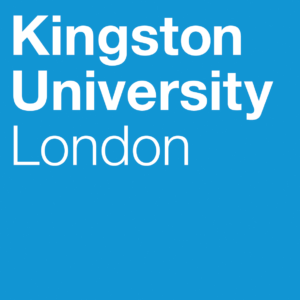Breadth and depth of GIS teaching gives more students highly marketable skills
Kingston were the first University ever, to offer undergraduates the opportunity to study GIS at degree level. Since 1989, the theory, concepts, application and techniques of GIS have proven to be a very popular MSc degree choice.
The Customer
Since 1989 when Kingston became the world’s first university to offer a degree in Geographic Information Systems (GIS), the institution’s GIS teaching and research expertise have gone from strength to strength. As one of the fastest growing branches of geoscience, the demand for GIS skills is increasing and Kingston’s undergraduate and postgraduate courses continue to evolve to ensure students remain as employable as possible.
The long established BSc in GIS, comprises 28 modules, each of which takes 14 weeks of study. The course examines the concepts, techniques and application of GIS and the broad choice of topics attract a wide range of students. The two Masters Degree programmes are popular with both private and public sector organisations.
In an ever changing world, it is important to develop the students of today with the right skills, enabling them to apply for a wide range of jobs in the future
Teaching cutting-edge technology is one of Kingston’s mantras and through the Eduserve CHEST programme, Kingston has access to Esri software
Kingston offer one of the most in-depth GIS degrees in the world and students from other disciplines also benefit from taking a GIS module, teaching the latest GIS methods and techniques
The Challenge
Kingston is not in the business of producing ‘GIS technicians’ or promoting ‘button technology’, instead it focuses on supplying the market with ‘geo-scientists’ – a somewhat unique person who has the knowledge of the concepts and theories of geographical enquiry, coupled with the skills of a computer scientist. This arms students with the ability to be able to apply GIS to a problem and understand it more effectively through using the technology to tackle it.
One example of Kingston’s innovative GIS teaching is in fieldwork where it uses Esri software to help students learn about data collection, limitations of data and the constraints that GIS professionals often encounter. Kingston has increased the amount of fieldwork over the years as it strongly believes the only way of generating a true understanding of GIS is to get out in the real world and examine the environment first hand, as with any other geoscience.
GIS is relevant to many aspects of further and higher education. Over 80% of universities in the UK and Ireland currently have access to Esri software and we want to encourage the higher education community to maximise the use of this powerful technology.
Kingston University’s long established BSc in GIS aims to develop GIS Professionals who understand the concepts and theories of geographical analysis, coupled with the skills of a computer scientist
Students can gain from learning techniques such as, data manipulation, health and disease analysis, 3D modelling,Geoweb development and virtual reality
Students graduating from Kingson are equipped with the ability to apply GIS to a wide range of problems, leveraging GIS technology to interpret information, run scenarios and ultimately, discover a solution.
The Solution
Kingston uses Esri as one of its GIS software platforms to help teach techniques such as the collection, manipulation, storage analysis, health and disease analysis, geoweb development, 3D modelling and virtual reality.
…GIS from companies like Esri gives us the ability to model and analyse the world in new ways which just weren’t possible in the past
Dr. Kenneth Field – GIS Course Director at Kingston University
The Benefits
The benefits of the extensive GIS modules are felt right across the University’s School of Geography, Geology and the Environment. Not only do Single Honours BSc Undergraduates enjoy one of the most in-depth GIS degrees in the world but students from Environmental Science, Geography, Geology, Computer Science, Forensic Science and Business Studies also take advantage of GIS modules.
Second year and Masters students undertake a week-long mobile GIS field course to Malta which involves creating a mobile mapping environment to support collaborative student learning – a significant step forward in enhancing the benefits of field-based learning. Students work through a range of data acquisition scenarios using consumer and high precision GPS and handheld PDAs running Esri’s ArcPAD as well as using mobile applications built using ArcGIS Server, ArcGIS Mobile and the ArcGIS JavaScript API. Capturing data on noise pollution, land use, vegetation, habitation and transport network information; the data is then applied to a whole range of exercises.
Having a wide range of software and hardware available ensures Kingston can teach the latest GIS methods and testing the boundaries of technology is one of the core tenets of Kingston’s teaching philosophy.
Teaching and testing with cutting-edge technology is one of Kingston’s mantras and the Malta trip is a great example of an educational innovation with the GIS sector. Working with the latest technology allows the university to teach the most up-to-date techniques, which is invaluable in preparing students for the work place. While desktop GIS is essential, as the industry moves more towards client/server models and cloud-based computing, likewise Kingston has to remain at the forefront of any technical advances.



